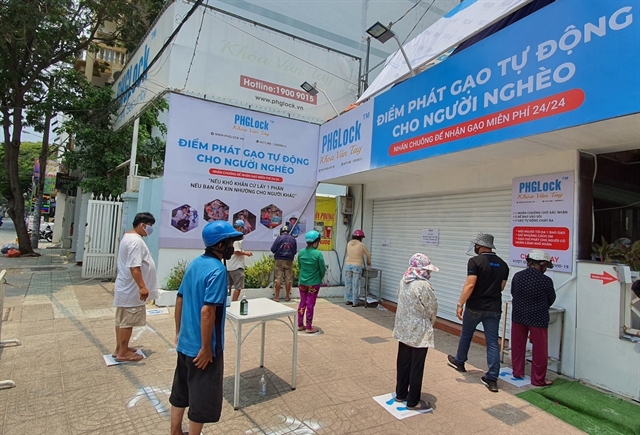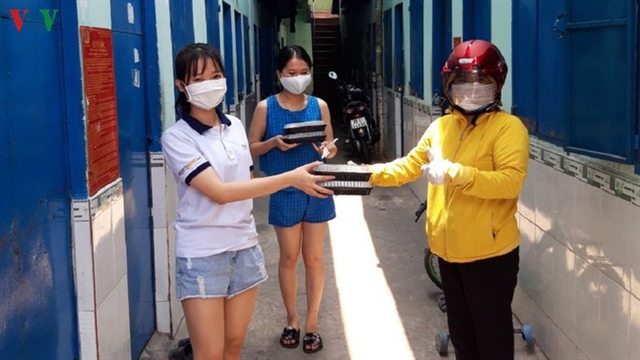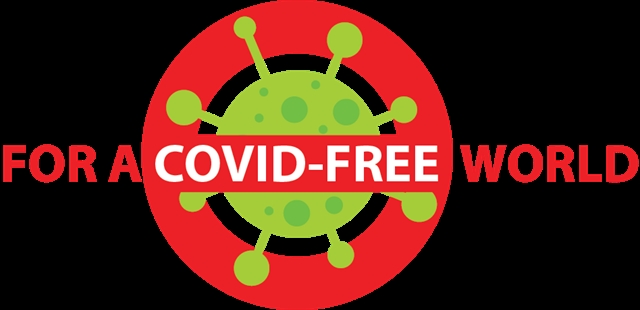
HCM CITY — Financial relief packages and free supply of rice and other essential goods are among the many initiatives being taken by the Government and charity organisations to help workers affected by the COVID-19 pandemic.
Around 9.1 million people have had their employment status negatively impacted by the pandemic in the first quarter of this year, with the services sector being the worst affected, according to the General Statistics Office of Việt Nam (GSO).
They include 540,000 people who lost jobs and 2.8 million who were forced to take time off work due to suspension of production by their companies, while the rest had working hours reduced, Phạm Hoài Nam, director of the GSO’s population and labour statistics department, said.
More than one in five workers in the services sector were affected.
The agriculture, forestry and fisheries sector were the least affected, with just 7.5 per cent of workers reporting negative impacts.
The Ministry of Labour Invalids and Social Affairs has recommended a number of measures to support the affected workers.
Those losing jobs because their employers face difficulties due to the pandemic should get unemployment allowance, it said.
There should be policies to encourage businesses to obtain loans to pay furlough grants for workers, and to give them unsecured interest-free loans to pay wages to employees, it said.
The GSO has proposed issuing vaccine passports and preparing to resume tourism to bring back jobs.
Meanwhile, Lê Minh Tấn, director of the HCM City Department of Labour, Invalids and Social Affairs, promised to take all measures needed in the second half of the year to safeguard workers’ incomes and jobs.
The city has spent VNĐ465 billion (US$20.2 million) to support more than 336,550 business households and workers severely affected by COVID, according to the department.
Tấn said 47,533 workers at 2,862 city enterprises have been laid off, and authorities have provided assistance to 20,000 of them.
The city is also set to offer a second financial relief package for affected businesses and workers.
Tourism, transport, small and medium-sized businesses, teachers, sacked workers, and informal sector workers will be beneficiaries of payments to be made between this month and December.
The department proposes to pay workers furloughed for at least a month relief payments of VNĐ1.8 million ($78) a month.
Besides, charity organisations and individuals have been donating food, setting up hundreds of ‘ATMs’ to dispense free rice and giving to ‘zero-đồng’ supermarkets, while landlords have reduced or deferred rents.
Many landlords have also been donating rice and other essential items to their worker tenants.
Trần Công Danh, a landlord in Bình Tân District, said he reduced the rents on 150 rooms by 50 per cent.
Nguyễn Thái Trâm, in Gò Vấp District, said she had donated 10 kilogrammes of rice and other basic necessities like sugar, cooking oil, salt, fish sauce, meat, and eggs worth VNĐ200,000 ($9) every week since early May to all 250 of her tenants.
Lê Thị Hành, who rents a room in Tân Phú District’s Tây Thạnh Ward, said her landlord had reduced the rent by 70 per cent and also gives her essential items.
This has been occurring in many places in the city, with people even waiving rents for up to two months.
Trade unions too have pitched in to help ease workers’ plight.
Nguyễn Thị Thảo, a teacher at a school in Bình Thạnh District, is off work.
"I and my husband usually earned around $520 per month. After rent and other expenses, we did not have much left," Thảo said.
"When the pandemic broke out, I was six months pregnant with my first child, and was trying to save as much as possible."
"I was moved to receive a gift pack of $78 in cash from the city’s financial aid package as well as rice, cooking oil and fish sauce."
“We were in financial difficulty and dependent on my husband’s income, which is unstable because of the epidemic. I have been helped by the Bình Thạnh District Trade Union and my school Trade Union," she said.
A Bình Thạnh District leader said in the short term the focus would be on supporting contracted people working in public schools, like babysitters and cooks, who do not get paid by the city and have no or reduced incomes after schools closed.
Every grassroots trade union has a programme to care for the poor.
Recently rice ‘ATMs’ were installed around the city to provide workers with two kilogrammes of rice and also eggs.
It has already received donations of more than 25 tonnes of rice, and will continue to solicit donations to keep going as long as possible.
More than 200 lunches are donated daily by the District 5 Trade Union to disadvantaged workers living in boarding houses. It has also financially supported poor families in the area.

Lê Thị Dần, 72, of District 5, whose family has 12 members, said: "district authorities gave rice and instant noodles a couple of times and neighbours gave five kilogrammes of rice".
“We are very grateful,” she said.
Dozens of so-called ‘zero-đồng’ supermarkets have been set up by the Red Cross and others to help poor people and those who lost jobs during the pandemic.
One such supermarket at the Vĩnh Nghiêm Pagoda in District 3 is among 18 set up across the country by Apec Group.
Each of the Zero-VNĐ Happy Supermarkets is designed to ensure visitors maintain at least a two-metre gap under the government’s social distancing mandate.
Shoppers can choose five items from among food, clothing and books with a combined value of up to VNĐ100,000 ($4.2). — VNS
